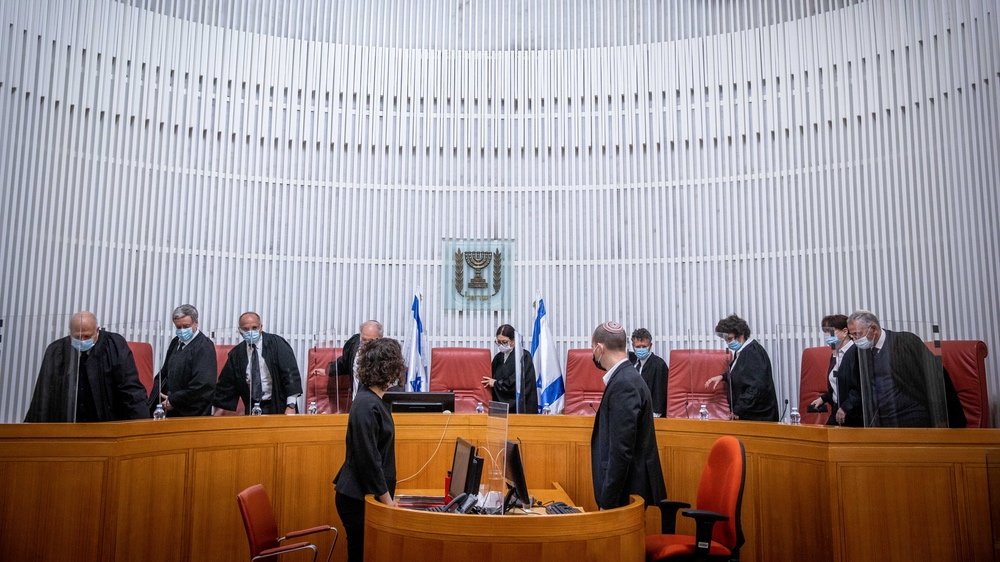Christian attempts to convert Jews to Christ have increased dramatically over the past few years. One result of this is that recently a Christian missionary was arrested in Israel.
How does Israel deal with this surge in Christians coming from around the world to bring “salvation” to the Jews? Here is an inside look at the politics, policies and players in Israel and the Christian mission to the Jews.
History
In order to understand the latest efforts against Christian evangelists in Israel we must consider the history of modern missions to the Jewish state. Already in 1821 American Evangelicals came to this land spreading the Gospel among the Jewish immigrants arriving from Lithuania under the guidance of Elijah Zalman, the Gaon (genius) of Vilna. Other missionaries soon followed from Germany, Finland, Russia and England, all hoping to find willing converts amongst the struggling Jewish immigrants.
These early Christian missionaries coming from both Catholic and Protestant traditions experienced success converting many local Arabs to their different Christian denominations. The Jews, however, fled.
Not put off by Jewish resistance, Christian missionaries built churches, monasteries, hospitals, schools, factories and publishing houses all across the Land. They offered local Jews and Arabs educational opportunities, jobs and practical assistance like food, clothing, money and other incentives. The “missionary problem” soon became a major concern for the newly developing settlements of impoverished Jews returning to their homeland.

Can Israel stop the Christian Gospel?
With the establishment of the state, Israel’s founders debated how they could limit aggressive Christian missionaries from taking advantage of the needy Jewish population. Restricting the Christian mission would surely be misunderstood by modern democracies where freedom of religion is considered a basic and moral right. In order to ensure freedom of religion in Israel, the nation did absolutely nothing to constrain these missionary activities, nor were any laws written limiting any Christian missionary activities in the Land.
Many government officials, both secular and religious, continued to push for laws restricting missionary activities. “Israel was established to preserve the Jewish people and Jewish values. Missionaries are a counter force working against these aims,” they argued. In addition, they pointed out that because Christians had persecuted the Jews for centuries, their “mission in Israel” should be limited.
Until 1977, the Ministry of Foreign Affairs refused to allow any Jewish organizations from taking any action against foreign missionaries out of concern that it might appear that Israel does respect the basic right of freedom of religion.
According to the Ministry of Religious Affairs, in spite of massive ongoing efforts by numerous Christian organizations, including using financial incentives to convert Jews to Christ, “Jewish conversion to Christianity was negligible.”
There was no need to limit missionary activity in Israel because Jews refused to believe in the Christ the churches preached. For hundreds of years Christians built schools, hospitals and churches, investing many millions of dollars hoping to convince the Jewish people that Jesus is their promised Messiah (See: Faith and the Need for Jewish Hospitals). In spite of these massive efforts, only a very few Jews were converted to Christ.

Troubles begin
In the 1960s, large numbers of Arab and Jewish Israelis registered their children in Catholic and Protestant schools, which to them seemed to have better curriculums than the Israeli Hebrew schools. Jewish parents were not concerned that their children would convert to Christianity, they were confident in their secular Israeli Jewish identity.
Government officials, however, both secular and religious, were concerned about the growing trend and in 1968 passed the first “anti-missionary law” which states that “No one can discuss changing religion with a minor (under 18 years of age) without their parents’ permission.” While Christianity is not mentioned in the law, records of the discussions surrounding the passing of this law show clearly that officials were concerned and wanted “to protect Israeli children from the Christian mission.”

Then came the Messianic Jews
Messianic Jews presented a whole new challenge to the Jewish nation. During the 1970s, large numbers of young Jews came to believe that Jesus is Messiah, but refused to convert to traditional Christianity or join Christian churches. These Jewish Christians, who later became known as Messianic Jews, openly declared that Yeshua (Jesus) is the Messiah for the Jewish people, while continuing to preserve aspects of their Jewish identity. The success of this new movement that combined elements of Judaism with their Messianic faith was a new and effective way of winning Jews to faith in Jesus.
Both religious and secular ministers in the government wanted to put a stop to the increasing number of Jews coming to faith in Jesus, but Israel could not enforce a law against Jews believing in Jesus. Israel’s Declaration of Independence protects an individual’s “freedom of religion and the freedom to change one’s religion as long it is not done under duress.” In addition, the state’s policy declared that “the government will not intervene in religious education nor in the preaching of any religion so long as it is done according to the law.”

Enter anti-missionary groups
As a democratic nation and an important tourist destination for Christians, Israel could not afford to restrict Christian missions from coming to Israel. Messianic Jews, however, presented an easier target.
Christian missions to Israel have been trying to convert Jews to Christ for over 200 years – without much success. As the Messianic Jewish movement emerged in the 1970s and began forming Messianic congregations around the country, Jews started coming to believe in Yeshua (Jesus), and people got nervous.
In an attempt to restrict the growing numbers of Jews believing in Jesus, a compromise was reached just six months after the right-wing Likud party (now headed by Netanyahu) won the elections for the first time in 1977. Menachem Begin’s government passed Israel’s “missionary law” stipulating punishments of prison and/or fines, determining that:
- No one can offer a material inducement for someone to change their religion.
- No one can discuss changing religion with a minor (under 18 years of age) without their parents’ permission.
The laws, however, were ineffective, and could not hold back what became known as the Messianic Jewish movement. By the 1990s, the numbers of Israeli Jews coming to believe in Yeshua had grown to such an extent that ultra-Orthodox Member of Knesset Moshe Gafni initiated a move to draft more restrictive, enforceable laws in an effort to punish the Messianic Jews and stop the movement of Jews coming to Christ. But the law never passed.

In the meantime, anti-missionary groups succeeded in bringing two cases before the Supreme Court to prevent Messianic Jews from immigrating to Israel as Jews. Supreme Court Justices ruled that “these Christian-Jews want to immigrate to Israel as those who have changed their religion and therefore they cannot immigrate to Israel according to the Law of Return.”
In their explanations, the secular and liberal judges noted that history, tradition and the general opinion of both secular and religious Jews is that “faith in Jesus is another religion.” The concept that a Jew who believes in Jesus could remain Jewish was and for the most part still is outside the realm of possibility for a majority of Jewish people.
In this way, the Orthodox religious parties in the government were able to use the Supreme Court to harass and restrict the growing Messianic Jews from their missionary activities while preserving the so-called principle of “freedom of religion” in Israel.

The Christian mission to Israel: The final chapter
The Messianic community in Israel responded to Gafni’s threats by forming an Israeli Messianic Jewish and Christian coalition called the Messianic Action Committee (MAC). The group organized a mass media campaign calling for “deliberate, continuous and intense pressure” on Israeli lawmakers, politicians and others friendly to Israel in order to prevent any further anti-missionary, undemocratic legislation.
International Christian organizations joined the Messianics in their fight for the right to preach the Gospel to the Jewish people in Israel. American Evangelical groups (including the Jews for Jesus organization) filed complaints with the US State Department pointing out that new anti-missionary legislation would be in direct opposition to the International Religious Freedoms Act that the US Congress had recently passed.
Then, in a surprise move, former Prime Minister Benjamin Netanyahu cast his vote in favor of the new anti-missionary/Messianic bill at its first reading in the Knesset. Evangelicals raised a storm and accused Netanyahu of breaking his promise to them that Israel would protect the rights of Christians in the Land. Senator Jesse Helms, chairman of the Senate Foreign Relations Committee, and longtime friend of Israel, was enraged with Netanyahu’s support of the anti-missionary bill. Helms made it clear to the Prime Minster — Israel would be threatened with trade sanctions from the United States if the anti-evangelism legislation passed.
In what some saw as divine intervention, the Anti-Defamation League (ADL), the highly-respected Jewish organization adamantly opposed to Christian missions, pressured Netanyahu to reject the bill, insisting that “while we are concerned by efforts to convert Jews, we are also concerned by the implications that such anti-missionary legislation would have on all minority rights in Israel.”

It may come as a surprise to Evangelicals that Netanyahu is no fan of Christian or Messianic missions. When his coalition majority demanded a bill be passed preventing the preaching of the Gospel in Israel, he readily signed. In some ways he had no choice. Refusal to pass the bill would break up his coalition and cost him his premiership. When Netanyahu could no longer ignore the mounting international pressure to reject the anti-missionary bill, he was caught in a political jam, and once again caught everyone else off guard.
In private conversations, the Prime Minister single-handedly persuaded major Christian organizations in Israel to pledge that they would not evangelize Jewish people – a feat unheard of in 2,000 years of Christianity. The International Christian Embassy in Jerusalem (ICEJ), Bridges for Peace and other Christian groups signed, sealed and delivered to the Prime Minister’s desk their own anti-missionary guarantee – in lieu of the Knesset anti-missionary legislation – and the government withdrew support for the now-unnecessary bill.
Meanwhile, Messianic Jews in Israel continue to preach and teach that Yeshua is the Jewish Messiah with limited success. As their movement grows, so does the opposition, including ongoing persecution and attempts by the government to pass laws hindering their activities.
If Messianic families do not continue to celebrate the beauty of Jewish tradition together with their faith in Jesus at home and in their congregations, they will continue to assimilate into the Gentile Christian world and remain a foreign, unrecognizable witness to Israel’s Messiah.
This article was originally published on Israel Today in August, 2021.
Read more on this topic in: Is the Future of Messianics Jewish?
I am indebted to Dimitri Kugen a doctrinal student of law from Hebrew University on “Israel and the Christian mission to the Jews” for some of the background material in this article.
















4.57am….
A Jewish YESHUA turned into a Greek Roman god,
That is what is wrong. Was that what the Jewish Messiah was meant to be?
This is what is fundamentally wrong with Christianity.
So much of the above Editorial I have personally experienced.
Israel Today has changed over the years and I sense a personal searching is going on and Israel is going through much the same. Orthodoxy has to bend, everyone has much to soul search for. ????????
“…Orthodox religious parties in the government were able to use the Supreme Court to harass and restrict the growing Messianic Jews..”
So Orthodoxy used the Supreme Court to inhibit Israel’s salvation and now they are complaining that the Supreme Court is inhibiting them ruling democratically? Do you think the Lord is trying to tell them something?